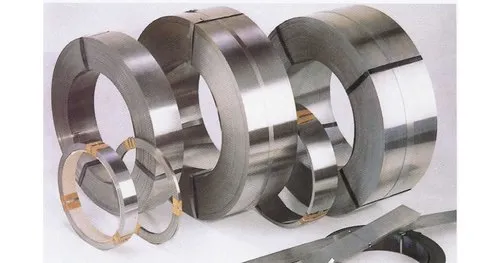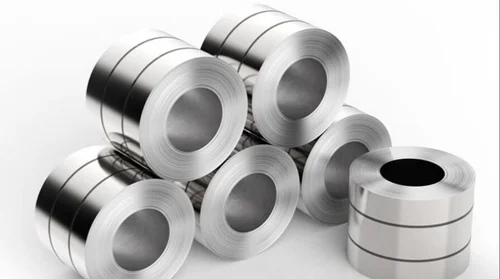In industries such as manufacturing, Delivery construction, automotive, and food processing, stainless steel coils play a critical role. Stainless steel is prized for its durability, corrosion resistance, and versatility, making it a preferred material for a wide variety of applications. Whether it’s used in the production of kitchen appliances, medical devices, automotive components, or structural elements, stainless steel coils are a crucial component in many industries. However, the quality of the material is only one part of the equation—the timely and efficient delivery of stainless steel coils is just as essential for ensuring smooth operations.
In this article, we’ll explore what goes into the delivery of stainless steel coils, the logistics involved, and why proper delivery practices are so important for industries relying on this material.
Understanding Stainless Steel Coils
A stainless steel coil is a long strip of stainless steel that is coiled into a roll after it has been manufactured or processed. These coils can vary in thickness, width, and grade, depending on the specific requirements of the industry. They are typically supplied in large rolls, which can be uncoiled and cut into sheets, plates, or further processed to meet particular specifications. Stainless steel coils are essential in various sectors for manufacturing parts, components, or products that require the material’s strength, resistance to corrosion, and aesthetic appeal.
The Importance of Timely Delivery in the Stainless Steel Industry
The need for timely deliver of stainless steel coils is critical for industries that rely on the material to keep their production lines running smoothly. Delayed delivery can lead to a chain reaction of setbacks, including halted production schedules, increased costs, and potential disruptions to supply chains. Efficient deliver practices ensure that companies have the raw material they need at the right time and in the right quantities, helping to avoid bottlenecks in the manufacturing process.
Some key reasons why timely delivery is so important include:
- Production Timelines: Many industries operate on strict production schedules. A delay in the deliver of stainless steel coils can push back production timelines, which can be costly in terms of both time and money.
- Cost Efficiency: Timely deliver of stainless steel coils can help companies maintain a steady cash flow and avoid the need to expedite deliveries or pay for emergency shipping, both of which can incur significant costs.
- Inventory Management: Just-in-time (JIT) inventory systems are common in industries that use stainless steel coils. These systems require precise, on-time deliveries to ensure that there is always enough material on hand to meet production needs without overstocking.
- Supply Chain Reliability: When companies experience frequent delays, it can damage relationships with suppliers, manufacturers, and other partners. Consistent, reliable deliver schedules help build trust and long-term partnerships.
Key Factors Affecting the Delivery of Stainless Steel Coils
The delivery process for stainless steel coils involves several critical steps, and a variety of factors can impact how efficiently and timely these coils reach their destination. Some of the main factors include:
1. Transportation Mode
The transportation method plays a significant role in the deliverspeed and cost of stainless steel coils. Depending on the distance between the supplier and the customer, delivery may involve:
- Truck transport: Common for regional and domestic deliveries, trucks can provide door-to-door service, though they are limited by road conditions and traffic.
- Rail transport: Often used for longer distances, rail is an efficient option for transporting large volumes of stainless steel coils.
- Sea freight: For international shipments, sea freight is often the most cost-effective choice, although it can be slower than land-based transport.
- Air freight: While expensive, air freight can be used for urgent deliveries requiring expedited service.
2. Packaging and Handling
Stainless steel coils are large, heavy, and require careful handling during transportation to prevent damage. Coils must be packaged properly to prevent scratches, dents, or rusting, which can compromise the material’s quality. Proper packaging also ensures that the coils remain in good condition throughout the supply chain, reducing the need for replacements or returns.
3. Customs and Regulations (for International Shipments)
When transporting stainless steel coils internationally, customs and import/export regulations come into play. Shipping companies must comply with international trade laws, tariffs, and certifications to ensure that shipments cross borders smoothly and without delay. Any hiccup in paperwork or compliance can result in costly delays.
4. Delivery Scheduling
For industries that require just-in-time deliveries, scheduling is paramount. It’s not just about getting the coils to their destination; it’s about ensuring they arrive at the exact time they’re needed for production. Effective communication between the supplier and the manufacturer is necessary to synchronize delivery schedules.
5. Weather and Environmental Conditions
Inclement weather can affect transportation, especially for long-distance and international shipments. Whether it’s heavy rain, snow, or other adverse conditions, weather can disrupt the delivery schedule. Companies must have contingency plans in place to handle such delays and mitigate their impact.
How Suppliers Can Ensure Efficient Delivery of Stainless Steel Coils

Suppliers and distributors of stainless steel coils can take several steps to ensure that their delivery processes are as efficient and reliable as possible. Some of these steps include:
- Investing in Logistics Technology: Advanced logistics software and tracking systems can help manage the delivery process, allowing for real-time monitoring of shipments and faster response times in the event of issues.
- Building Strong Relationships with Transport Providers: Long-term partnerships with trusted carriers and freight companies can improve reliability, as suppliers and delivery companies become familiar with each other’s processes and expectations.
- Maintaining Stock Levels: For industries with fluctuating demand, suppliers may keep a buffer stock of stainless steel coils to handle last-minute orders and ensure timely delivery.
- Clear Communication: Open lines of communication with customers regarding delivery schedules, delays, and product availability are crucial for maintaining customer satisfaction and managing expectations.
- Optimizing Routes and Delivery Methods: Using the most efficient transportation routes and methods—whether by road, rail, sea, or air—helps minimize delivery times and reduce costs.
Conclusion
The delivery of stainless steel coils is a crucial aspect of the global supply chain, particularly for industries that rely on stainless steel for manufacturing essential products. Ensuring timely and efficient delivery requires careful coordination between suppliers, transport companies, and manufacturers. By addressing key logistical challenges, maintaining clear communication, and utilizing modern technologies, suppliers can offer reliable delivery services that help businesses maintain smooth production processes and avoid costly delays.
Ultimately, the success of industries that use stainless steel coils depends not just on the quality of the material itself, but on the efficient, on-time delivery that keeps operations running without interruption.


